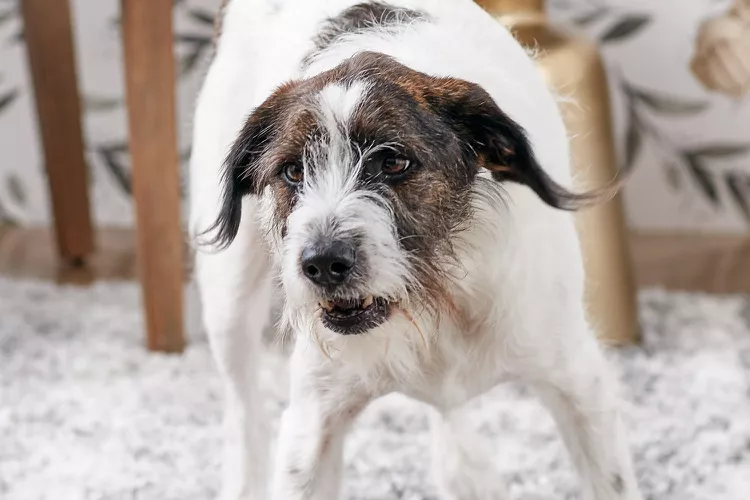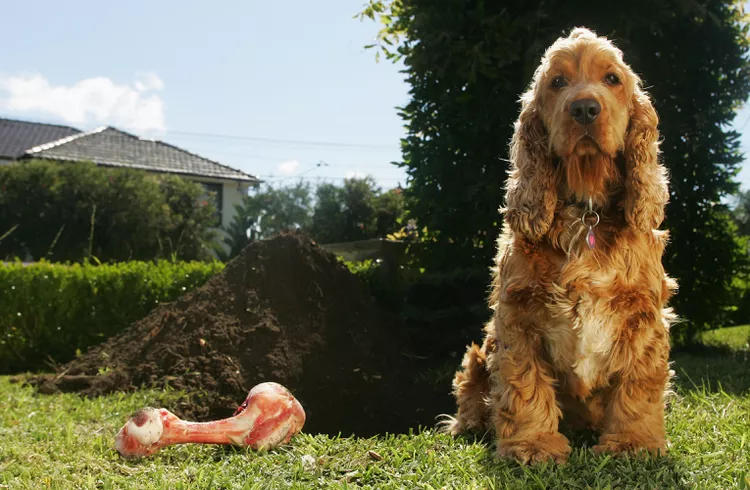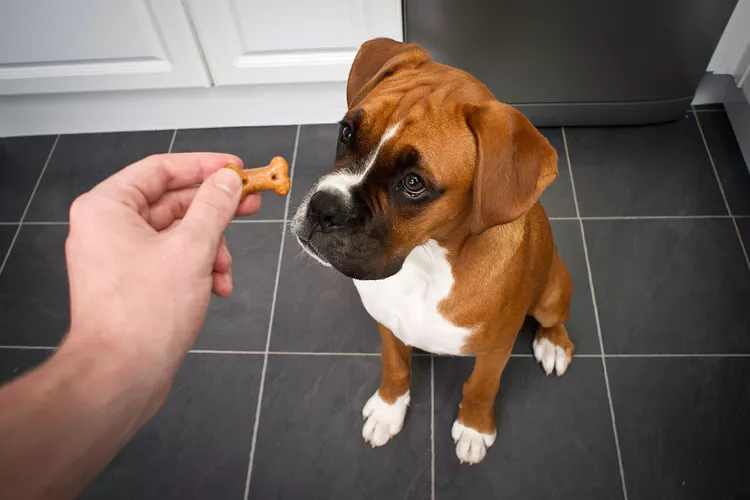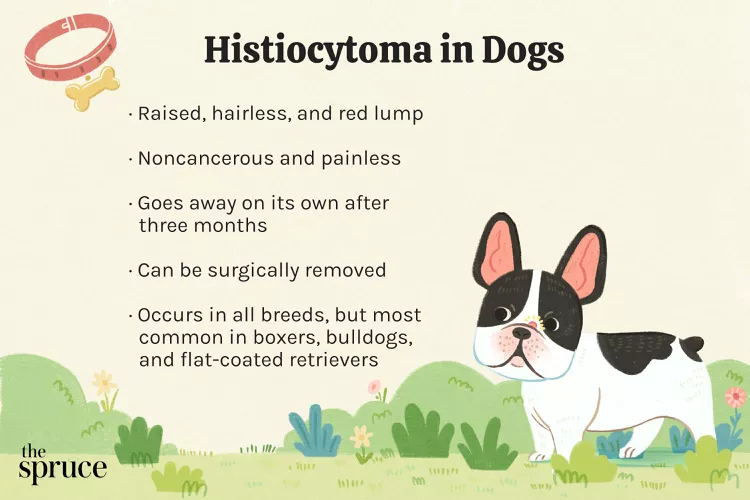
If your dog regularly growls, snaps, or bites, you might have a behavioral problem of aggression on your hands. Aggression is one of the top reasons dog owners seek the help of a professional dog trainer or animal behaviorist. And it's not just larger dogs and so-called "dangerous breeds" that are prone to aggression; any breed is capable of becoming aggressive under the right circumstances.
Although aggression can't be cured overnight, there are steps you can take to curb aggressive behavior and help your dog remain calm.
Aggressive behavior in a dog refers to any behavior connected with an attack or an impending attack. This includes becoming still and rigid, growling, snarling, baring teeth, lunging, and nipping or biting.
Your first step toward stopping this behavior is to figure out what is causing your dog's aggression. Some dogs growl as someone approaches them while they're eating or chewing a bone, for instance. Others react aggressively toward children or strangers.
The aggression doesn't have to be directed toward a person either. Some dogs become aggressive around other animals, only specific animals (cats but not other dogs), or toward inanimate objects, such as wheels on vehicles or yard equipment.
The key thing to keep in mind is that you can't come up with a plan to modify your dog's behavior until you know the reason behind it. The most common types of dog aggression include:
Any dog can pick up aggressive behavior, and it's important to track a pattern of warning signs, like:
Not all dogs who exhibit this behavior are generally aggressive—many of these warning signs are also an indication of anxiety or fear.
Make a note of when your dog becomes aggressive and the circumstances surrounding the behavior. This will play an important part in determining your next step. It is essential to deal with the underlying cause of the aggression. The behavior is just a symptom of an underlying problem. There are a number of ways you can manage the hostility and help your dog remain calm. It will take time, consistency, and possibly the help of a professional.
Dogs that aren't normally aggressive but suddenly develop aggressive behaviors might have an underlying medical problem. Health problems that may cause aggression include hypothyroidism, painful injuries, and neurological problems such as encephalitis, epilepsy, and brain tumors.
Talk to your veterinarian to determine whether this is the case with your dog. Treatment or medication may make big improvements in your dog's behavior.
If your vet has ruled out a medical problem, it's time to call in a professional dog trainer or animal behaviorist. Because aggression is such a serious problem, you shouldn't attempt to fix it on your own. A professional can help you figure out what's causing your dog's aggression and create a plan to manage it.
To find a professional dog trainer or behaviorist, ask your veterinarian for a referral or contact the Association of Professional Dog Trainers.
A behaviorist or trainer can help you figure out the best approach for managing your dog's aggression. In most cases, you'll use positive reinforcement to teach your dog new behaviors.
For example, if your dog is mildly aggressive toward strangers, start off by standing far away from someone your dog doesn't know. You should be far enough away so that your dog doesn't start to growl or snap. Then, reward with lots of treats and praise as you gradually decrease the distance between your dog and the stranger, continuing to use positive reinforcement.
Ideally, your dog will begin to learn that strangers equal treats and you'll see a reduction in its aggression. This same procedure can work for getting your dog used to a variety of other situations.
Punishing your dog for aggressive behavior usually backfires and can escalate the aggression. If you respond to a growling dog by hitting, yelling, or using some other aversive method, the dog may feel the need to defend itself by biting you.
Punishment may also lead to your dog biting someone else without warning. For example, a dog that growls at children is letting you know that he is uncomfortable around them. If you punish a dog for growling, he may not warn you the next time he gets uncomfortable, but may simply bite.
In some instances, training alone is not enough. Dogs that are aggressive may also need medication to help manage the problem. It's important to understand that a dog experiencing fear, stress, or anxiety is incapable of learning new things. Think of medication as a tool to help your dog overcome this fear. Many dogs will only need medication temporarily. Talk to your veterinarian about your options.
Finally, you need to consider whether your lifestyle allows you to stick with a plan. For instance, if you have a dog that acts aggressively toward children and you have kids, it's nearly impossible to avoid the situation that brings out the aggression. In this case, the best option for you and your dog may be finding it a new home with adults only.

Cute Pictures & Facts About Calico Cats & Kittens
Learn fascinating facts about calico cats, including photos, the genetics behind this color combination, and common folklore and traditions.
How to Prevent Cat Separation Anxiety During Vacations
Discover why cats develop litter box problems and cat behavior problems when you go on vacation and what you can do about it to help them.
Cat Behavior Changes That Might Mean Something's Wrong
Cats' behavioral changes may indicate problems—or they may mean nothing at all. Explore causes of odd behavior and what to do about them.
Lhasa Apso: Dog Breed Characteristics & Care
The Lhasa apso is an ancient breed from Tibet that was bred to be a watchdog. Learn about its history, health, exercise needs, and more.
Reasons Why Dogs Run Away and How to Stop It
Dogs can escape, especially if they’re bored and not properly contained. Here are some techniques for stopping your dog from running away.
Can Dogs Get Depression? How to Help Your Sad Dog
Can dogs get depression? Learn about the signs of depression in dogs and find out how to help your sad dog.
How to Stop Aggression in Dogs
Dog aggression can be a serious behavior issue for pet owners. Learn how to stop aggression in dogs before someone gets hurt.
How to Stop Your Dog From Growling
A growling dog can soon become even more aggressive. Reduce the noise and potential for a dangerous situation with some of these techniques.
Why Do Dogs Dig Holes? How to Stop Your Dog from Relandscaping Your Yard
Dogs have been digging holes for centuries and for many reasons. Whether they’re bored or want to cool off in the dirt, here are the top reasons why dogs dig holes.
Dog Treat Varieties
Learn about the different types of dog treats on the market and decide which are best for your dog.
Can Dogs Eat Asparagus?
Dogs can eat asparagus, provided the vegetable is cooked plain and cut up for them. Seasonings, salt, and butter make it unhealthy for dogs.
Histiocytomas in Dogs
A histiocytoma is a type of benign (non-cancerous) skin lump that usually affects young dogs. Learn the causes, treatment, and prevention.
Why Is My Dog’s Eye Swollen?
If your dog's eye is swollen, she may need veterinary attention. The inflammation could be caused by allergies, an injury, or even a tumor.
Common Bugs and Parasites Found on and Inside Dogs
Learn about common types of parasites in dogs. Find out how to treat and prevent parasites to keep your dog, your family, and yourself safe.
Exploring the Different Types of Pet-Friendly Beaches
Are you looking for pet-friendly beaches? Learn about the different types of pet-friendly beaches, their locations, and tips for visiting them with your pet.
10 Obscure, Little-known Canine Facts in Honor of National Dog Day
With National Dog Day upon us, it's time to celebrate everything about our favorite pets—even the weirder stuff. Here are 10 obscure facts about dogs you probably didn't know.
Kitten Development From 3 to 6 Months Old
Kittens grow and change a lot during their first year. Find out what happens between the ages of three months and six months old.
95 Siamese Cat Names
Our list of Siamese cat names has diverse and fun options to help you choose the ideal moniker for your elegant and lovable feline companion.
What to Buy for Your New Cat: A List of Essentials
Before you bring your new cat or kitten home, there are a number of things to collect or buy so your cat will feel welcomed like a family member.
The 6 Best Cat Nail Clippers of 2024 for a Safe Trim
Clipping your cat's nails can save your furniture and keep your kitty comfortable. We asked veterinarians for their cat nail clipper recommendations.